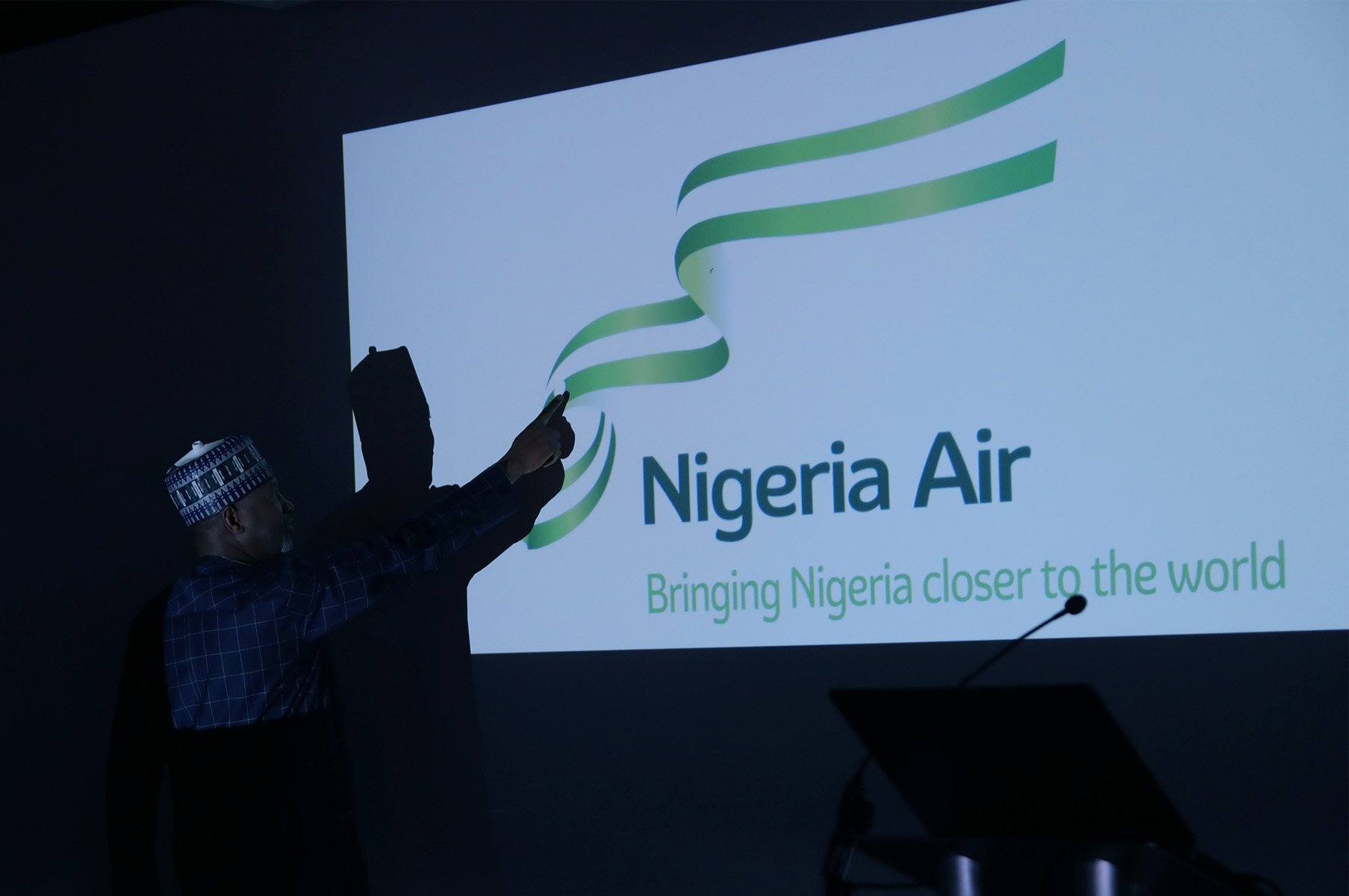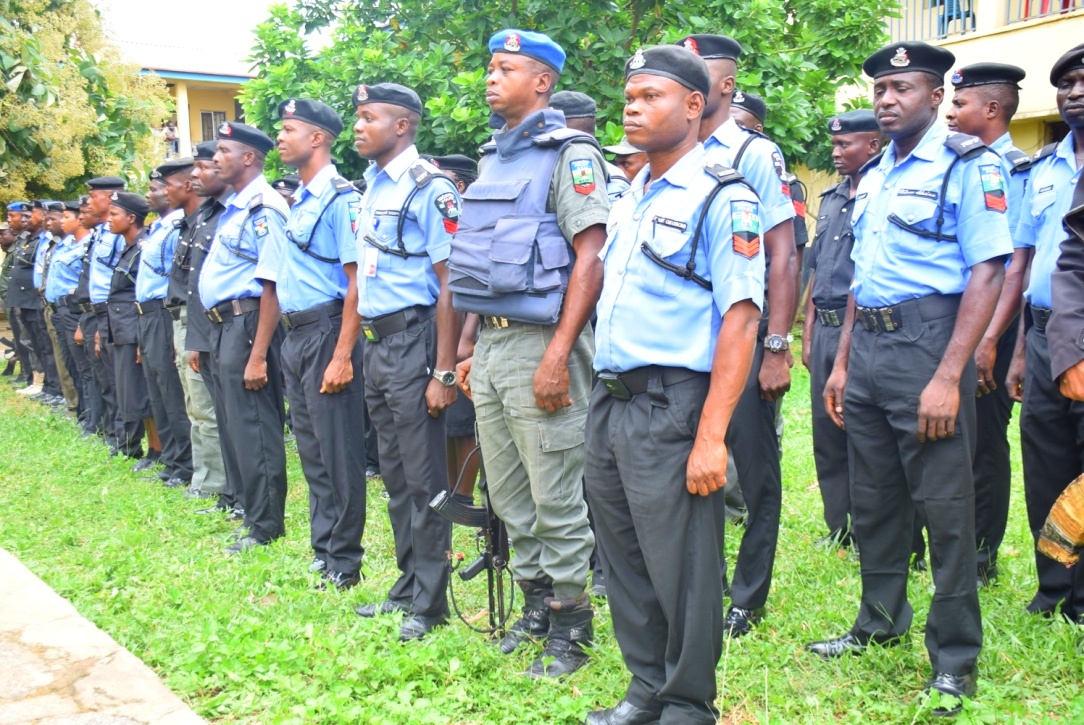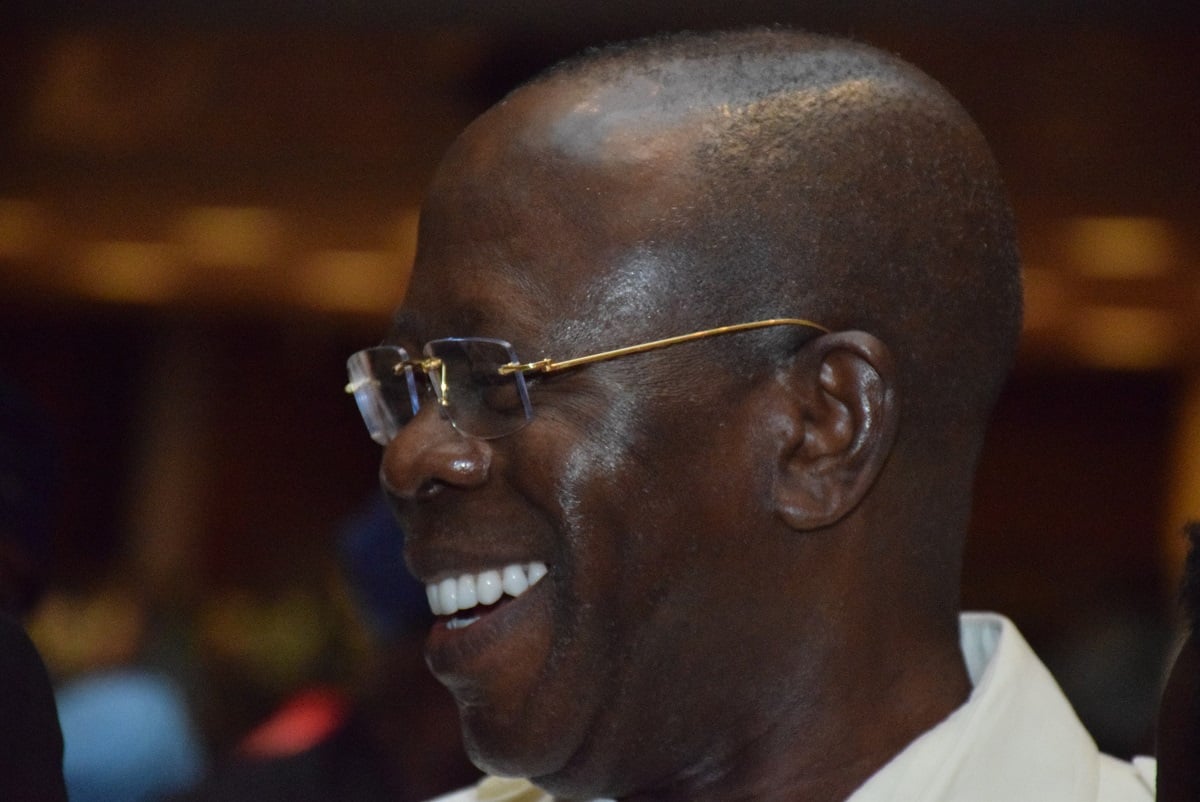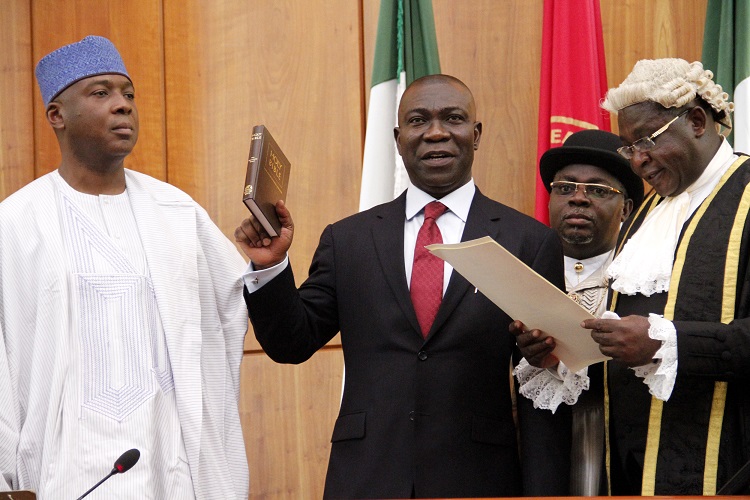The Minister of State for Aviation, Hadi Sirika, thinks he has found the medicine for public opinion: listen with blocked ears.
It worked for him last year when the Abuja airport was shut down for six weeks for runway repairs. The announcement of the closure sparked public outrage and many critics, including me, hammered him for ruling out other alternatives, especially with the potential risk that the completion date may have been understated.
Sirika stuck to his guns and, to his credit, pulled off the repairs ahead of schedule.
That success appears to have emboldened him to think that defiance is the only way to listen to public opinion. Once the government has made up its mind that it would launch a national carrier, it will, regardless of public opinion or evidence to the contrary.
Advertisement
If resurfacing the runway was small potato, though an important one, relaunching a national carrier is not a project to be undertaken on a whim, however patriotic the intention may be. Sirika needs to unplug his muffler and engage the public.
When people say they doubt the viability of a national carrier, it’s not necessarily because they’re looking for another rope to hang Buhari’s government.
The government is doing just fine tying itself up in knots without any help. In an industry already littered with documented examples of government failure, even failure of competent ones, the steps taken so far by this government hardly inspire confidence of a different outcome with Nigeria Air.
Advertisement
Somewhere in the 2015 transition notes which the Ahmed Joda committee handed over to Buhari, the committee hinted at the need to revisit a national carrier. That suggestion was uncalled for, but that’s not even the point now. In response, Buhari indicated that he welcomed the idea of relaunching the national carrier “as a matter of national pride and to create jobs.”
None of these reasons are strong enough. If airlines were run on national pride, I have no doubt that the goodwill of over 100 million or so Nigerians would have sustained Nigeria Airways and multiplied its fleet of 32 aircraft as at 1979, which came to zero 20 years later.
As for job creation, that’s another matter. Of course, for a country with 18.8 percent unemployment rate, every single job matters. But American Airlines, the largest airline by fleet, had only 126,000 staff as at 2017. So, how many jobs would Buhari’s government create with an airline that is starting with five aircraft, a livery produced in Bahrain for N163 million and a sketchy business plan?
Keep in mind that while we split hairs over the $8 million seed capital already provided by the government for the take-off of the airline, $4.9 million was reportedly paid in May last year to a consortium of six firms, including Lufthansa, for “advisory services”, which amounted to nothing when the parties fell out.
Advertisement
At Farnborough last week, Sirika offered more reasons beyond national pride and jobs. He said Nigeria had been grossly underserved by the BASA agreement it has with over 70 countries and there was the need to optimise the opportunity.
The BASA argument is concerning but hardly convincing. There are no airports in Andorra and the Vatican, while Switzerland and Belgium are major travel hubs with no flag carriers. Nothing says BASA slots must be taken by a national airline.
One of the bitter complaints of Arik Air under the previous management was that the airline’s requests for slots in Abuja and elsewhere (under BASA), were consistently and maliciously rebuffed by government officials who demanded bribes, while foreign airlines received preferential treatment.
Medview Airlines, which flew the national flag to London-Gatwick for a while and even advertised an ambitious international flight plan, also had similar tales of woe.
Advertisement
Yet, privately owned local airlines, specifically Arik Air, helped Nigeria regain its Category 1 status without which no Nigerian flag carrier could land in the US or Europe for nearly 20 years, and any talk of BASA was useless.
If the operating environment had been more auspicious for local airlines – or even foreign airlines that wanted to partner with local ones – we’ll probably not be at the receiving end of a lopsided BASA.
Advertisement
Obsession with BASA is not a business case. Also, it hardly addresses the fundamental infrastructural deficit or the opacity in public funds spent in the aviation sector in the last couple of years.
In January, Sirika said the government was looking for between $400 million and $500 million only to fix design defects in the ongoing new Abuja international airport terminal buildings.
Advertisement
How can? Exactly five years ago this month, Nigeria and China signed a loan agreement of $500 million for “the construction of four new international airport terminals in Abuja, Lagos, Port Harcourt and Kano”, by the China Civil Engineering Construction Corporation (CCECC).
Perhaps some of that Chinese loan was spent in Abuja, Lagos or Kano? But the Port Harcourt airport remains a crime scene. Any discussion to invest public funds in air infrastructure must begin with an explanation of what happened to the $500 million Chinese loan or the $1 billion that the Justice Nwazota judicial commission of inquiry recommended for recovery from the ruins of Nigeria Airways.
Advertisement
All failed national airlines or carriers have similar pathetic stories. Common among them are poor customer service, squalid fleet and personnel management and political interference.
In the graveyard of fallen national carriers, Nigeria Airways and Greece’s Olympic Airlines share a strikingly similar epitaph: murdered by political interference.
Apart from free and heavily discounted tickets which government officials, their families and friends used to enjoy at Nigeria Airways, personal assistants of very important political figures would sometimes seat in the aircraft with instructions to the pilot not to fly until the big man or woman arrives.
By the time the nonsense was over in 2003, the airline had collapsed with a hole of $1 billion in the books and other staff liabilities amounting to about N45 billion.
The story of Olympic Airlines was not different. After 30 years of its existence during which Greek government officials sometimes used it for airmail, grocery andnewspaper errands, the airline collapsed. Its remains were ignored for nearly five years before the government finally sold them off as scrap, leaving 8,000 workers stranded.
Sirika needs to make a business case for Nigeria Air and the project should fly or fail on the strength of his case.
Whether the initial commitment of $8 million is seed, equity or debt is not exactly my beef. The public needs to know how the London-based Airline Management Group, which replaced the previous advisers, was selected and also who the current technical partners are.
Apart from Ethiopian Airlines, which other investors have shown interest in Nigeria Air? And what are the pre-selection criteria? How will a foreign investor repatriate earnings in light of frequent and unilateral official cap on remittances that left foreign airlines stranded for months about one year ago?
If Nigeria Air is launching in five months, with Nigeria as the hub, what is the level of infrastructure at the airports and the degree of regulatory competence to support the service? Why is it not possible to create an enabling environment that will allow local private airlines pick up the BASA slack, if that is the major concern?
How does the government plan to deal with high taxes, multiple fees and levies (not to mention volatile fuel costs), which the ADB President, Akinwunmi Adesina, once said makes air travel around the continent 200 per cent higher than the cost of travel in Europe?
And why is Sirika bent on launching the service on the eve of the next general elections?
The success story of Ethiopian Airlines, Singapore Airlines and the Gulf carriers is tempting to imitate, but let’s face it, we’re a long way from the level of discipline and policy consistency that have made these airlines the success story that we admire.
I understand that on the eve of a major election when Buhari desperately needs something to show for his first term, it would be good to tick off the stylised green-white-green eagle on the livery of Nigeria Air as one of his achievements.
But what’s the point? Air travel currently accounts for less than one per cent of passenger commute and therefore has little or no electoral value. If Sirika, however, insists that this venture is Nigeria’s next gold rush, he has yet to make the business case for it.
Ishiekwene is the Managing Director/Editor-In-Chief of The Interview and member of the board of the Global Editors Network.
Views expressed by contributors are strictly personal and not of TheCable.
Add a comment







